Share the post "Texas Is A Stop And Identify State, When …"
Most of us carry our IDs on our persons out of habit, rarely considering the details of Texas regulations regarding identifying ourselves on request. Each state differs in its crime-related laws, and some states have rules enforcing citizens to identify themselves on demand or sometimes only under certain circumstances. Is Texas a “stop and identify” state?
Several US states have laws that allow the police to order citizens to identify themselves when they suspect them of a crime. Texas is not a “stop and identify” state, but police officers can legally demand identification under certain circumstances.
Key Points:
- Texas is not a “stop and identify” state, but police can legally demand identification under certain circumstances.
- Citizens must only identify themselves when arrested or exercising certain privileges, such as driving or carrying a handgun.
- Failure to identify oneself in Texas can result in fines or even imprisonment, depending on the circumstances.
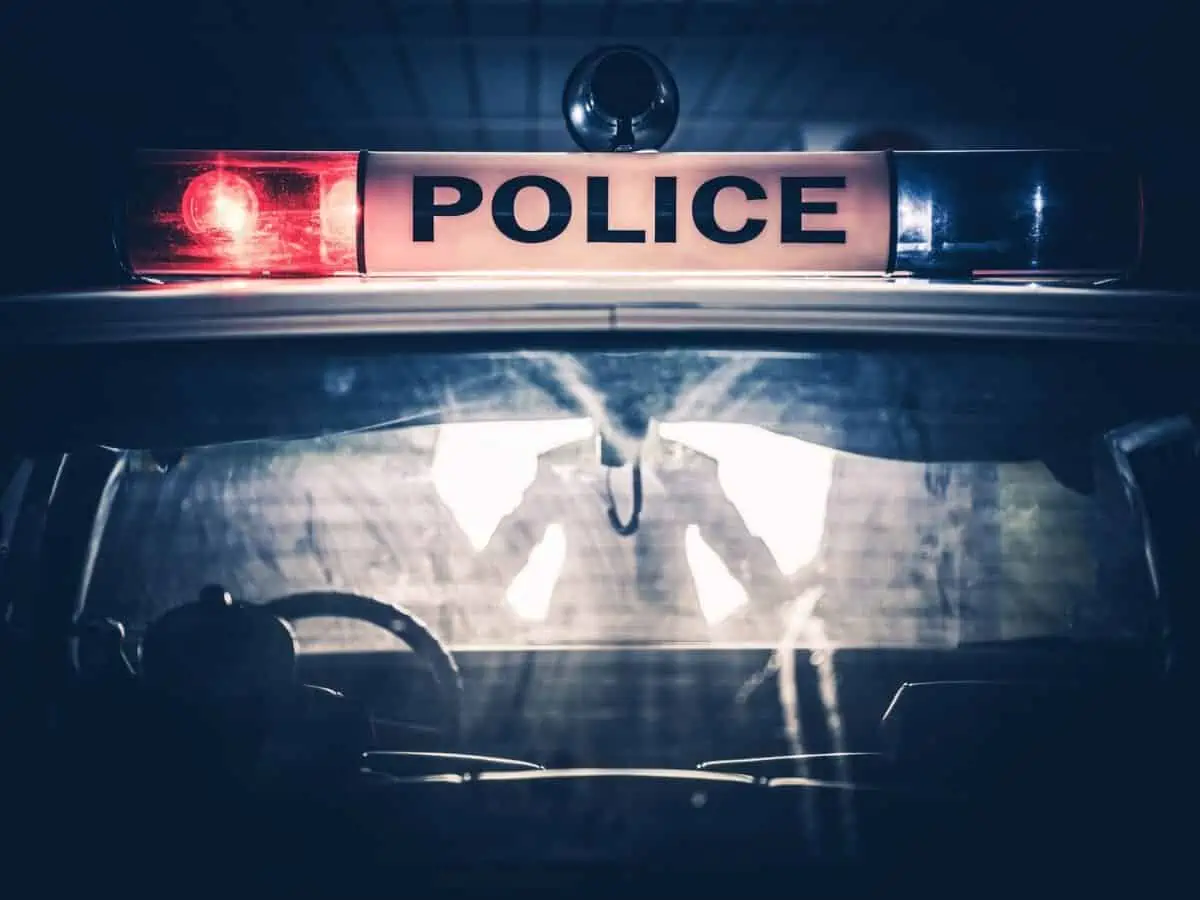
- Stop And Identify Laws In Texas
- Presenting Identification When Detained In Texas
- Stop And Identify Is Compulsory When Under Arrest In Texas
- Interesting Facts On Stop And Identify Situations In Texas
- Consequences for failing to identify yourself in Texas
- ID Laws in Texas
- Rights of individuals when stopped by the police in Texas
- How to Handle a Situation Being Stopped by The Police in Texas
- Differences in Stop and Identify Laws Between Texas and Other States
- Common Misconceptions About Stop and Identify Laws in Texas
- FAQs - Stop And Identify Situations
Stop And Identify Laws In Texas
Specific people can demand to see your ID, only under particular circumstances in Texas. Under Texas law, you are only obliged to identify yourself when arrested or exercising certain privileges, such as driving or carrying a handgun. Of course, it’s more complex than that, so let’s look at the finer details of identification laws in Texas.
In the USA, encounters with the police fall into three categories:
- Consensual
- Detention
- Arrest
A consensual encounter refers to police engaging a person because they suspect them of criminal activity but have no evidence. They may ask questions hoping to obtain information relevant to their investigation. The person does not have to identify themselves or respond to any queries and can leave the area at will.
- To detain the person for a short period in Texas, the police officers must have a reasonable suspicion that they have committed or will commit a crime.
Texan peace officers and magistrates may only ask you for your ID after arresting you.
Certain activities, such as driving and carrying a handgun, are considered privileges rather than rights, requiring people to have their licenses with them at all times. Peace officers may also lawfully demand to see your licenses.
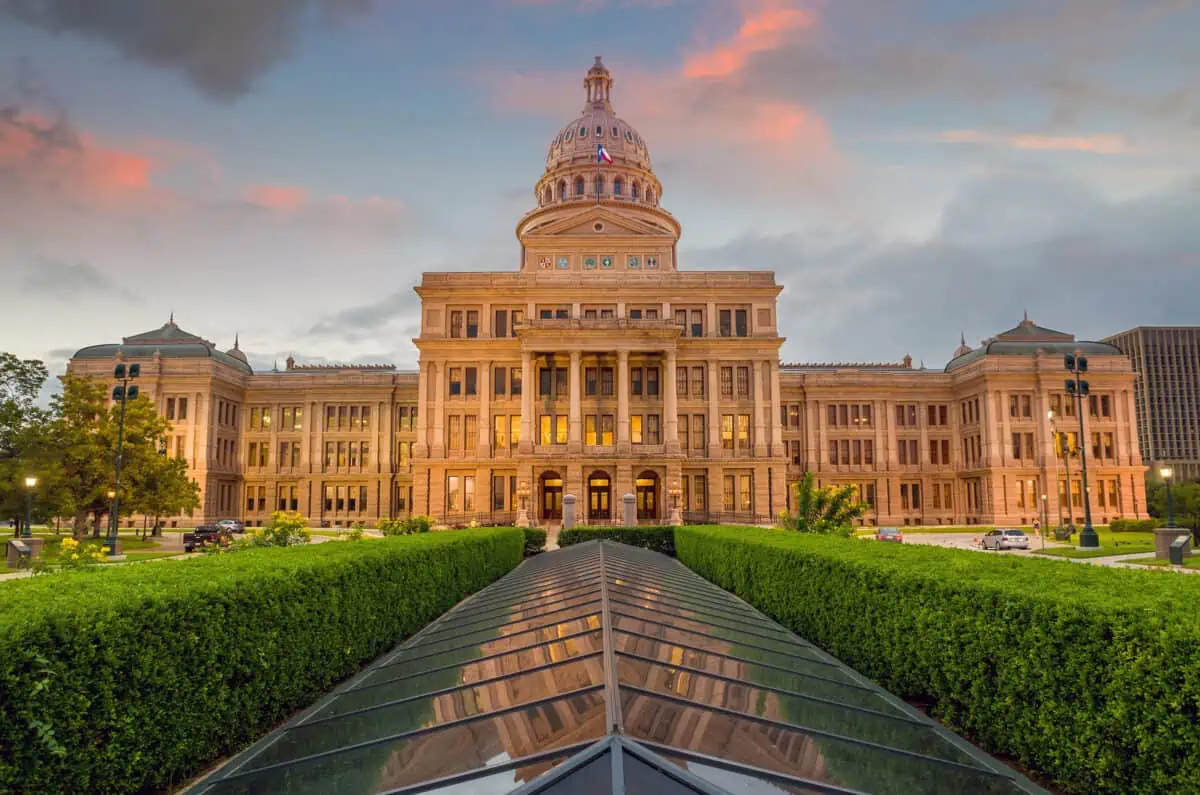
Peace Officers Allowed To Demand Stop And Identify In Texas
Every Texan peace officer must complete the Texas Commission on Law Enforcement (TCOLE) Basic Peace Officer Course. This will allow the individual to acquire the Texas Peace Officer license after passing the examination.
Peace officers come from a variety of vocations besides the police force. Under the Texas Code of Criminal Procedures Article 2.12, there are 34 categories of peace officers. While it’s unnecessary to name all types of peace officers, a short list to indicate the variety of positions included can be seen below:
- Sheriffs, deputies, and reserve deputies
- Constables, deputies, and reserve deputy constables
- Marshals and police officers of any town or city
- Rangers, officers, and reserve officer corps members of the Department of Public Safety
- Texas Alcoholic Beverage Commission law enforcement agents
- Parks and Wildlife Commission law enforcement officers
- Officers commissioned by specific county hospital boards of managers
- Different types of investigators
- Some fire marshals
Laws Applicable To Stop And Identify Situations In Texas
Specific laws govern the circumstances in which individuals must identify themselves in Texas. Each regulation or statute discusses the relevant offenses and the penalties they will incur.
| Law | Offense | Offense Type |
| Section 38.02 of the Texas Penal Code | Not identifying yourself to a police officer after arrest Giving false identification after arrest or detention. | Class C Misdemeanor Class B Misdemeanor |
| Section 521.025 of the Texas Transportation Code | Not carrying a driver’s license or displaying it when a peace officer, magistrate, or court officer requests it. | Misdemeanor punishable by a fine, confinement in the county jail, or both |
| Section 411.205 of the Texas Government Code | Not displaying a license to carry a handgun (LTC) on request of a peace officer. Not displaying a copy of a “protective order designation.” | Class C Misdemeanor |
Examples Of Legal Stop And Identify Requests In Texas
Now that we have examined the Texas laws regarding identification, we will look at examples of how this plays out in reality.
Example 1 – Driving
If a police officer lawfully detains you while driving a vehicle, the law requires you to produce your driver’s license, registration information, and proof of insurance for that car. If you refuse, the officer will arrest you because you cannot prove that you aren’t driving without the required license.
Example 2 – Guns
Likewise, if you carry a licensed gun in Texas and a police officer detains you, you are obliged to produce your License to Carry (LTC). Should you refuse, the officer could arrest you on suspicion of criminal activities and carrying the weapon without a license.
Example 3 – LTC
If police officers pull you over and request your driver’s license, and you hold an LTC, the law demands that you present it simultaneously.
Failure to identify yourself while exercising the privileges of driving and carrying a handgun is considered contrary to the law in Texas. However, you do not have to consent to any searches the officers want.
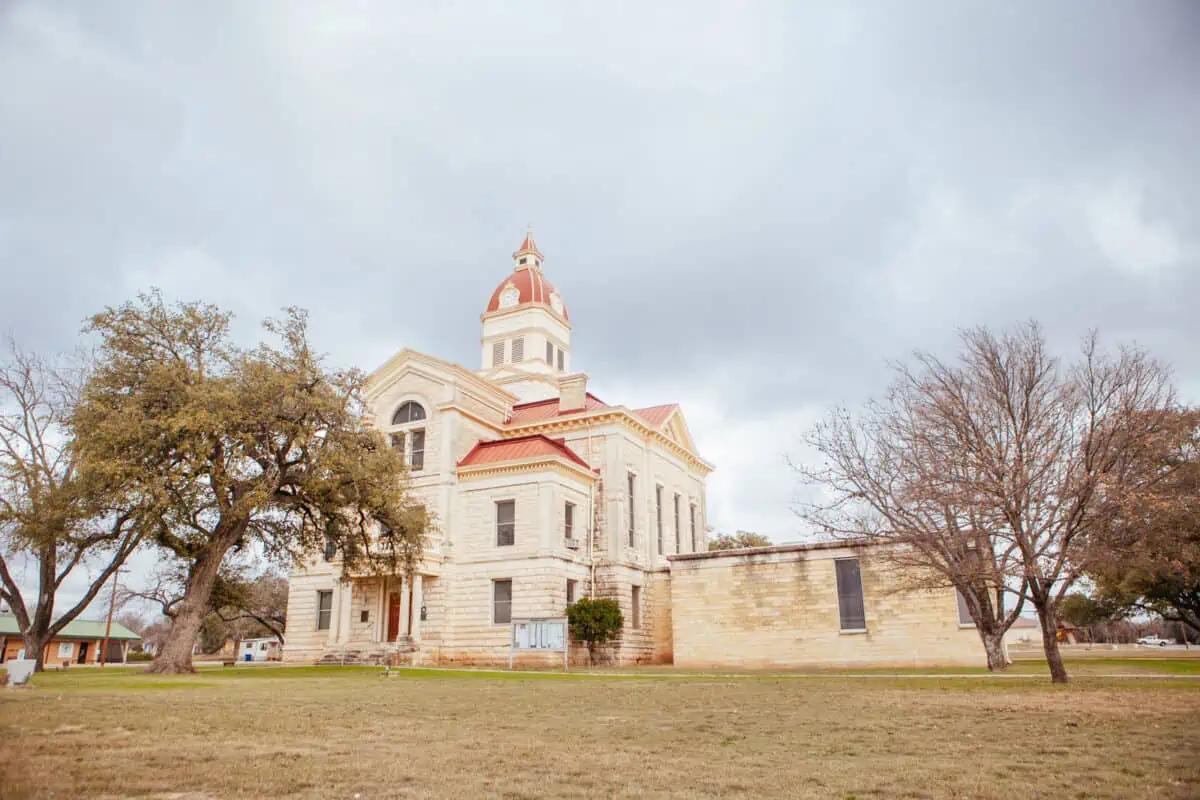
Presenting Identification When Detained In Texas
In Texas, police officers may detain you if they reasonably suspect you are busy with criminal activities or if the offense is still to be committed. They may also detain you if they believe you have witnessed a crime.
Police officers may detain you for a reasonable time when trying to confirm their suspicions of your alleged criminal activity. The US Supreme Court considers 20 minutes a reasonable time for detention.
If you’re not in a vehicle or carrying a handgun when Texas police detain you, you do not have to identify yourself and give them your details on demand. While police officers may try to question you and demand this information, you are under no obligation to produce it until they arrest you.
You may ask if you are free to leave, and if they find no reason to arrest you, they are obliged to release you without any proof of identity on your part.
Should Passengers Stop And Identify Themselves In Texas?
Sometimes, people find themselves in the wrong place at the wrong time. Where does that leave you if the driver of the vehicle you’re in is detained or arrested? Of course, that may depend on your role in everything happening, but let’s suppose the police officer suspects the driver of a crime or pulls him over for speeding.
If the police officer asks for your ID, you may refuse to answer any questions, including giving your name and other personal information.
However, if you choose to answer the questions, the law requires that you respond truthfully. If you provide a fictitious name, you commit a misdemeanor, Failure to Identify.
If you’re not the driver of a vehicle that police have pulled over and you have a handgun on your person, you must identify yourself to the officer by showing your LTC.
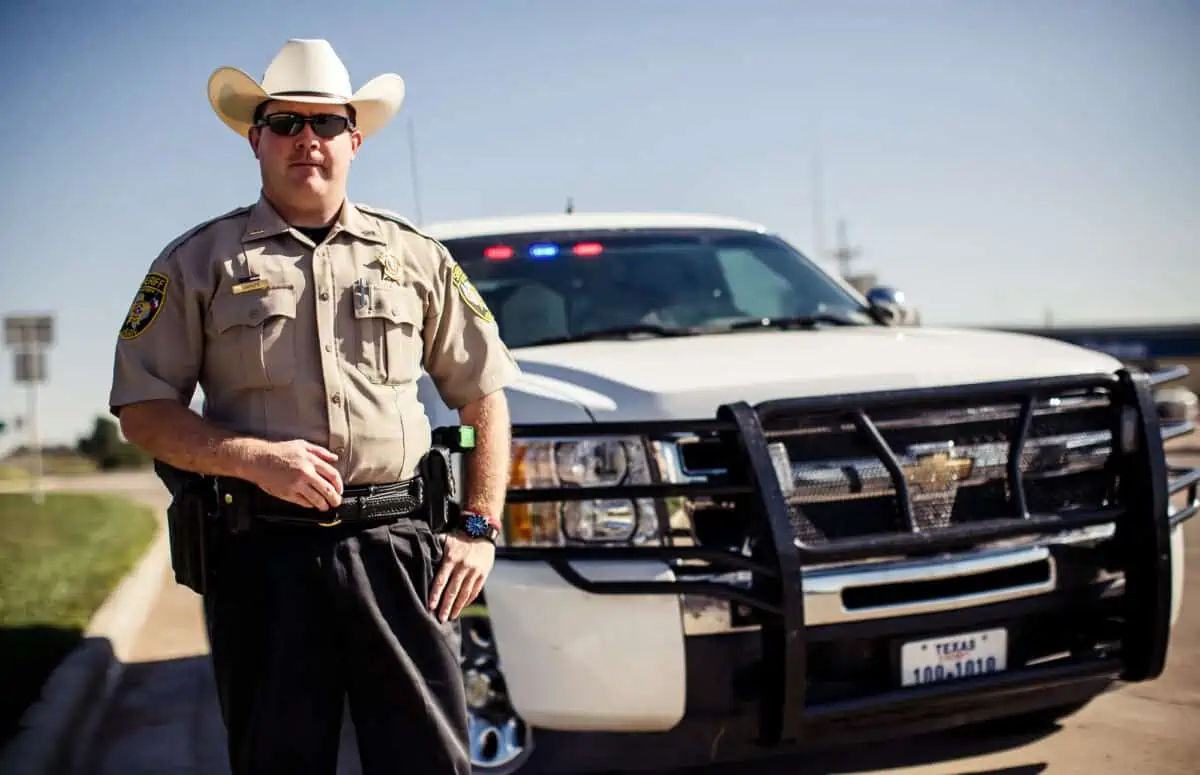
Stop And Identify Is Compulsory When Under Arrest In Texas
When law enforcement officers place you under arrest in Texas, you are compelled to identify yourself on request. When police officers discover facts that lead them to believe that you have committed a crime, it is called probable cause. This entitles them to arrest you.
They may then demand your name, home address, and possibly your date of birth, which you must provide. Refusing to comply is a Class C misdemeanor.
Interesting Facts On Stop And Identify Situations In Texas
Here are a few unknown facts regarding identification laws and situations in Texas.
- When a police officer detains somebody, they often call it a Terry stop. This relates to the court case Terry v. Ohio, 392 U.S. 1, where Terry was apprehended for walking up and down looking in shop windows. Police officers believed he was casing the area for future robberies. This court case developed the reasonable suspicion concept.
- During detention or consensual encounters with police, they don’t have to inform you that the law doesn’t require you to produce your ID or that you’re free to go.

Consequences for failing to identify yourself in Texas
In Texas, the failure to identify oneself to law enforcement can have various legal repercussions depending on the circumstances. Texas Penal Code Section 38.02 deals explicitly with the offense of “Failure to Identify.”
Circumstances Under Which You Must Identify Yourself
- Lawful Arrest: If you are under arrest, you are legally required to provide your name, residence address, and date of birth to a peace officer who has lawfully arrested you and requested that information.
- Lawful Detention: If you are lawfully detained (but not arrested), you must provide your name, residence address, and date of birth if the officer requests this information. However, you are not legally required to provide identification if you are merely being questioned and are not under arrest or lawfully detained.
Consequences
- Misdemeanor: Failure to identify oneself while under arrest is generally considered a Class C misdemeanor, which can result in a fine of up to $500.
- Aggravated Offense: If you intentionally provide false or fictitious information while under arrest, the charge is elevated to a Class B misdemeanor. This could result in a fine of up to $2,000 and/or confinement in jail for up to 180 days.
- Additional Charges: Failure to identify can often be accompanied by other charges, such as resisting arrest or evading detention, which could result in more severe penalties.
Special Cases
- Warrants: If you are arrested, and you have an active warrant from another jurisdiction, failing to identify is considered a Class B misdemeanor.
- Witnesses: A person who witnesses a criminal offense must provide their name and residence address to a peace officer when requested, but only if the officer informs the person that they are a witness to an offense.
It’s important to note that simply declining to identify oneself is not an offense unless you are under arrest or lawfully detained. The Texas Penal Code does not require individuals not under arrest or lawfully detained to identify themselves to law enforcement officers.
Legal interpretations and consequences can vary, and laws are subject to change. Therefore, consulting a qualified attorney is recommended for specific legal advice tailored to individual circumstances.
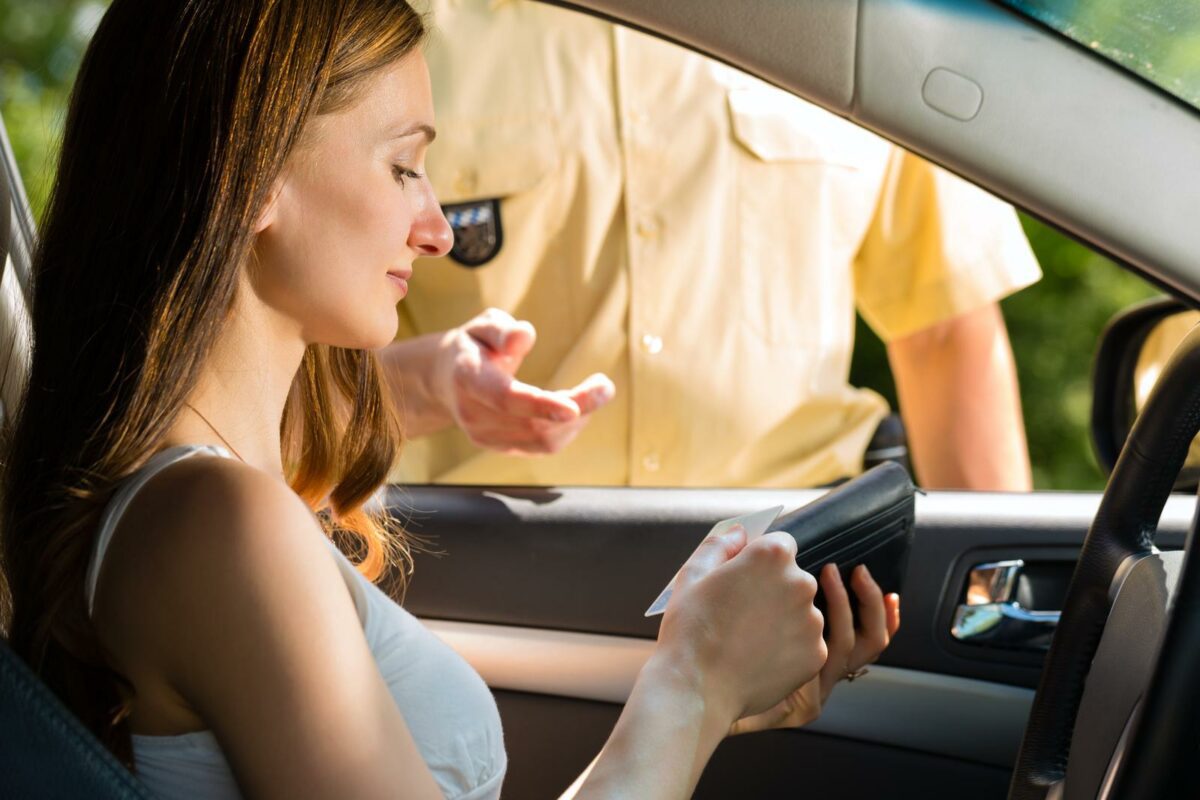
ID Laws in Texas
Texas has specific requirements for obtaining and using identification cards, including driver’s licenses. The laws surrounding IDs in Texas are fundamental in contexts such as voting, driving, and accessing various services.
Voter ID Laws
Texas has some of the strictest voter ID laws in the United States. Voters must present one of seven forms of approved photo ID when voting in person. The list includes:
- Texas driver’s license
- Texas Election Identification Certificate
- Texas personal identification card
- Texas Handgun License
- U.S. military identification card containing the person’s photograph
- U.S. citizenship certificate containing the person’s photograph
- U.S. passport
Suppose a voter cannot present one of the seven forms of approved photo ID. In that case, they can vote by signing a declaration stating they have a reasonable impediment to obtaining an approved ID. They must also present supporting documentation, such as a utility bill or paycheck.
Driver’s License and State ID
To obtain a driver’s license or state ID, residents must provide various documents to verify identity: Social Security number, U.S. citizenship or lawful presence status, and Texas residency. This often involves presenting multiple forms of identification and proof of residency, such as utility bills or bank statements.
Other Identification Laws
Texas law also specifies that certain forms of ID must be shown to purchase alcohol or tobacco, to enter certain regulated premises, or to travel domestically by air.
It’s essential to stay updated on Texas ID laws, as they can change over time. Penalties for not adhering to these laws can range from minor fines to more serious legal consequences, depending on the context.
Please note that laws are subject to change, and it’s advisable to consult official sources or legal professionals for the most current information.
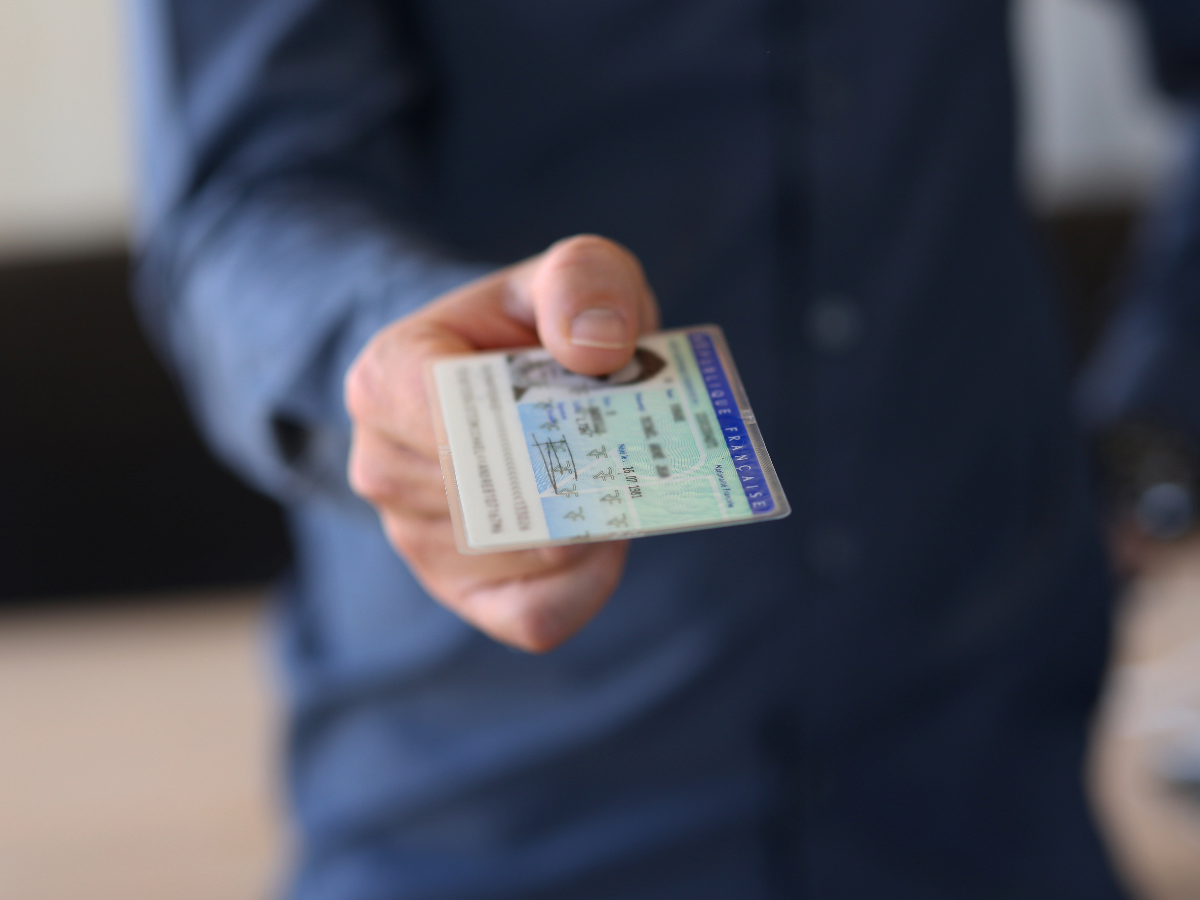
Rights of individuals when stopped by the police in Texas
In Texas, as in the rest of the United States, individuals have certain constitutional rights when stopped by the police. Understanding these rights can be crucial for ensuring fair treatment and protecting oneself during interactions with law enforcement. Here is a breakdown of some of these rights and best practices for interacting with police officers:
Rights During a Police Stop
- Right to Remain Silent: Under the Fifth Amendment, you can remain silent to avoid self-incrimination. You may inform the officer that you are choosing to exercise this right.
- Right to Refuse Searches: Fourth Amendment protections mean that an officer cannot search your person, vehicle, or home without a warrant or probable cause. You can politely decline a search; however, situations like visible contraband can give the officer probable cause to conduct a search without your consent.
- Right to Leave: Unless you are detained or arrested, you can calmly ask the officer if you can leave. If the officer says you may leave, you can do your business.
- Right to an Attorney: If you are arrested, you have the right to consult with an attorney before speaking to the police. You can request to call your attorney and should refrain from answering questions until your attorney is present.
Recommendations for Interaction
- Identification: If stopped by a police officer, you are generally required to provide your name, date of birth, and address. You are not legally required to provide more information unless you are arrested.
- Cooperation: While you have rights, it is often in your best interest to be polite and cooperative. Confrontational behavior can escalate the situation and lead to additional charges.
- Record the Interaction: Texas law allows you to record interactions with the police. However, it is advisable to inform the officer that you are recording, and you should not interfere with the officer’s duties while doing so.
- Understand the Type of Stop: Texas law differentiates between “detentions” and “arrests.” An officer needs “reasonable suspicion” to detain you and “probable cause” to arrest you. Knowing the difference can help you understand your rights in a given situation.
- Field Sobriety and Breathalyzer Tests: You can refuse to take these, but refusal can lead to automatic license suspension under Texas’ implied consent laws.
After the Stop
- File a Complaint or Commendation: If you believe your rights have been violated, you can file a complaint with the police department’s internal affairs division. Likewise, you can file a commendation if the officer is exceptionally professional.
- Legal Advice: If you’re arrested or believe your rights were violated, it’s advisable to consult a qualified attorney for legal advice tailored to your specific situation.
Understanding your rights when stopped by the police is essential for ensuring that you are treated fairly and by the law. Note that laws and interpretations can change over time, so it’s always advisable to consult current legal resources or professionals for the most up-to-date information.
How to Handle a Situation Being Stopped by The Police in Texas
Being stopped by the police can be a stressful experience. Knowing your rights and how to conduct yourself can make the situation go more smoothly and protect your legal interests. Here’s a guideline on how to handle a situation where you are being stopped by the police in Texas:
Initial Steps
- Pull Over Safely: If you’re driving, signal your intent and pull over to a safe spot, such as the shoulder of the road. Turn off your engine and roll down your window.
- Keep Hands Visible: Keep your hands on the steering wheel so they are visible to the officer. If you’re a passenger, keep your hands in plain sight, preferably on your lap.
Interaction with the Officer
- Be Polite and Respectful: While you have certain rights, being confrontational can escalate the situation unnecessarily. Always address the officer respectfully.
- Provide Required Identification: You’re generally required to provide your name, address, and date of birth. If you’re driving, you’ll also need to show your driver’s license, registration, and proof of insurance.
- Know Your Rights: You have the right to remain silent and the right to refuse to consent to a search. Politely inform the officer if you wish to exercise these rights.
- Avoid Sudden Movements: If you need to reach for your ID or any other document, communicate clearly what you’re doing before you move.
Special Circumstances
- Field Sobriety Tests: You can refuse these tests, but be aware that refusal may result in your license being suspended.
- Breathalyzer Tests: Texas has implied consent laws, meaning that refusal to take a breathalyzer test can lead to automatic license suspension.
- Recording the Encounter: You have the right to record your interactions with the police. If you choose to do this, inform the officer that you’re recording and make sure your actions do not interfere with their duties.
If You Are Detained or Arrested
- Clearly Ask if You Are Free to Go: If the officer does not have grounds to detain or arrest you, asking this question may prompt the officer to clarify your status.
- Invoke Your Right to Remain Silent: If you’re arrested or detained, you don’t have to answer questions without a lawyer present. Simply state that you’re invoking your Fifth Amendment rights.
- Request Legal Counsel: If arrested, ask for an attorney immediately and do not answer further questions until your attorney is present.
- Comply Physically: Even if you believe you are being wrongfully detained or arrested, resist the urge to physically resist as this could lead to additional charges.
After the Stop
- Document the Experience: As soon as possible, write down everything you remember about the stop, such as the officer’s badge number and the sequence of events.
- File a Complaint or Seek Legal Advice: If you believe your rights were violated, consult an attorney and consider filing a complaint with the police department.
Knowing your rights and obligations can help you navigate the complex and often stressful situation of being stopped by the police. Always remember that laws and protocols may change over time, so it’s advisable to stay updated and consult legal professionals for the most current information.
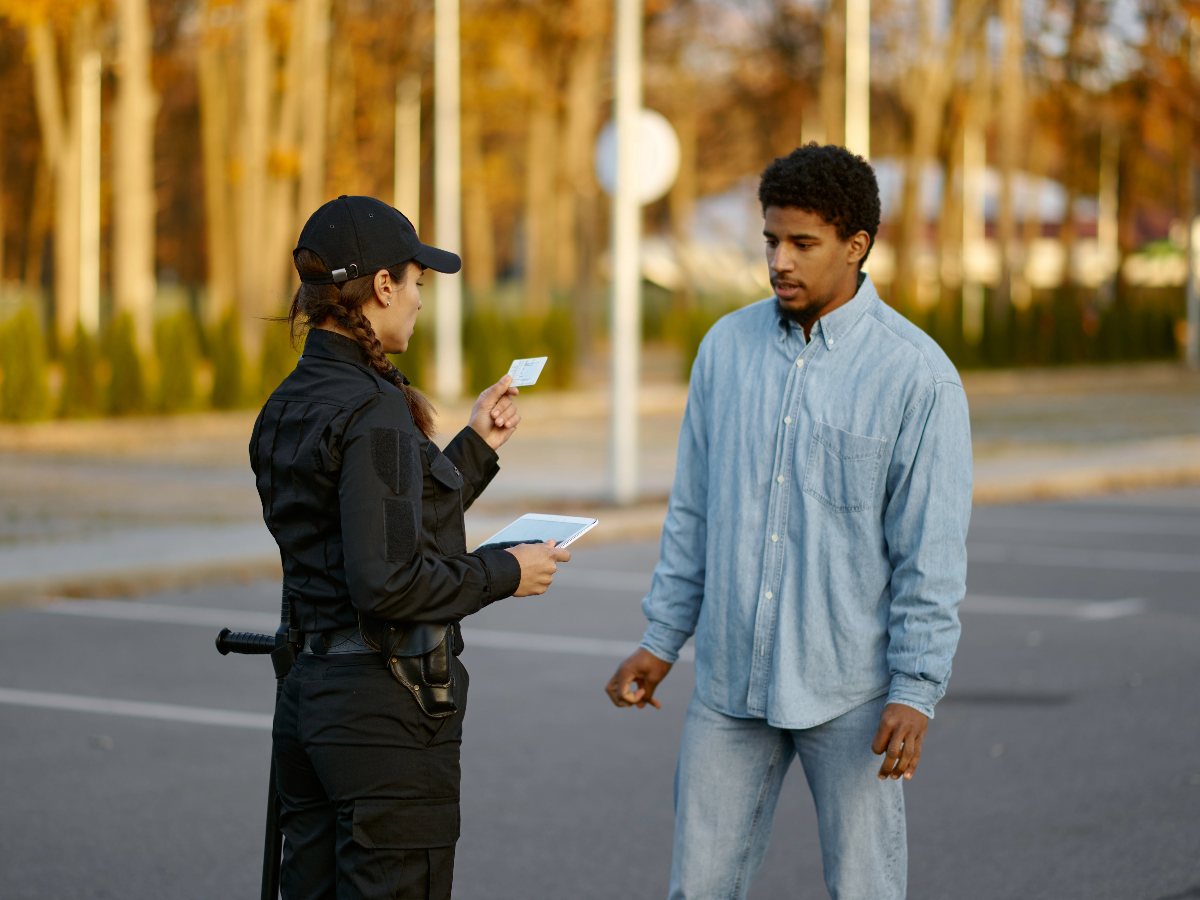
Differences in Stop and Identify Laws Between Texas and Other States
Other States
- Nevada: Unlike Texas, Nevada law allows law enforcement to detain individuals to ascertain their identity if the officer has reasonable suspicion to believe that the person has committed a crime.
- New York: New York does not have a “stop and identify” statute per se, meaning that you’re generally not obligated to carry ID or present it to law enforcement officers.
- Arizona: In Arizona, failure to provide truthful name when lawfully detained can result in a Class 2 misdemeanor.
- California: Officers in California may only request identification if they have reasonable suspicion to believe you’ve committed a crime.
- Florida: Like Texas, Florida requires individuals to provide identification if lawfully arrested but does not require people who are merely being questioned to provide ID.
Common Threads Across States
- Fifth Amendment: Across all states, individuals have the right not to incriminate themselves under the Fifth Amendment, meaning you generally have the right to remain silent.
- Fourth Amendment: Your Fourth Amendment rights against unreasonable searches and seizures apply in all states. Without reasonable suspicion or probable cause, an officer generally cannot detain you to ascertain your identity.
Key Differences
- When ID Must Be Provided: Some states require ID only upon arrest, others upon detention, and some have no requirement at all.
- Type of ID Required: Some states may require physical ID cards, while others may allow verbally provided information.
- Penalties: The legal repercussions for failing to identify yourself can vary from fines to imprisonment, depending on the state.
Understanding the nuances between Texas’ “stop and identify” laws and those of other states can be beneficial, particularly if you find yourself interacting with law enforcement outside of Texas. As always, laws are subject to change, and for the most accurate and personalized advice, it’s best to consult legal professionals.

Common Misconceptions About Stop and Identify Laws in Texas
The “stop and identify” laws in Texas are often subject to misconceptions that can lead to misunderstandings between citizens and law enforcement. Here are some common misconceptions and the realities that counter them:
Misconception 1: You Must Always Identify Yourself to Police
Reality: In Texas, you are only legally required to identify yourself if you are lawfully arrested or detained. If you are merely being questioned but are not under arrest or lawfully detained, you are not obligated to provide identification.
Misconception 2: Failure to Identify is Always a Crime
Reality: Failing to identify yourself is only an offense if you are under lawful arrest or detention. Merely refusing to identify yourself when you’re not lawfully detained or arrested is not a criminal offense under Texas Penal Code Section 38.02.
Misconception 3: You Must Show Physical ID
Reality: In Texas, you are required to provide your name, residence address, and date of birth if you are lawfully arrested or detained. You don’t necessarily have to present a physical ID, such as a driver’s license, unless you are operating a vehicle.
Misconception 4: Providing False Information is a Minor Offense
Reality: Intentionally providing false or fictitious information while under lawful arrest is a Class B misdemeanor in Texas. This could result in a fine up to $2,000 and/or confinement in jail for up to 180 days.
Misconception 5: Police Can Detain You Indefinitely to Identify You
Reality: Police can only detain you for a reasonable amount of time to ascertain your identity. Indefinite detention without charges is generally considered unconstitutional.
Misconception 6: “Stop and Identify” Means Police Can Stop Anyone to Ask for ID
Reality: Law enforcement officers must have “reasonable suspicion” of criminal activity to detain you legally. They cannot arbitrarily stop individuals to ask for identification without this legal basis.
Misconception 7: You Can Be Charged for Refusing to Identify as a Witness
Reality: Texas law states that a person who is a witness to a criminal offense can be required to identify themselves if asked by a peace officer. However, the officer must inform the individual that they are a witness to an offense; otherwise, there’s no obligation to identify oneself.
Understanding these nuances in “stop and identify” laws in Texas can significantly impact interactions with law enforcement and can protect your rights during such encounters. Laws can change over time, so for the most accurate and personalized advice, it’s advisable to consult legal professionals.
FAQs – Stop And Identify Situations
What Should I Do If I Have Been Unfairly Arrested?
Do not resist the officers placing you under arrest. Remain calm and polite, stating your intention to remain silent regarding the charge, and request a lawyer immediately.
What Are My Responsibilities When I’ve Been Arrested?
While remaining calm and cooperative, try to retain all the situation details. If you believe that the police officers have violated any of your rights, you can file a written complaint. Remain truthful and do not give false identification or fictitious names. It will complicate the matter further, and you could incur further penalties.
Share the post "Texas Is A Stop And Identify State, When …"
Christian Linden is a seasoned writer and contributor at Texas View, specializing in topics that resonate with the Texan community. With over a decade of experience in journalism, Christian brings a wealth of knowledge in local politics, culture, and lifestyle. He holds a Bachelor's degree in Communications from the University of Texas. When he's not writing, Christian enjoys spending weekends traveling across Texas with his family, exploring everything from bustling cities to serene landscapes.











